Kanae Kobayashi
Nascimento : 1907-03-07, Kanazawa, Ishikawa Prefecture, Japan
Morte : 2001-09-08
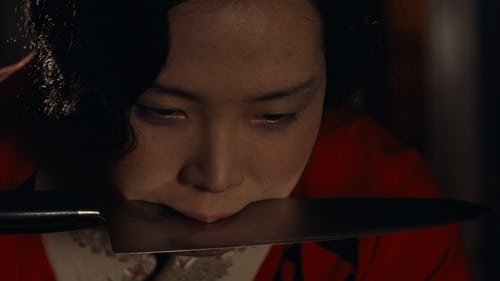
Kikuryu
A história que é ambientada em 1936 é sobre uma ex-prostituta que envolve-se em um caso de amor obsessivo com o chefe de uma propriedade onde ela é contratada como empregada. O que começa como uma diversão inconseqüente transforma-se em uma paixão que ultrapassa todos os limites. Inspirado em um caso real, mostra a história de um amor total, onde dois amantes vivem uma paixão absoluta, uma busca incessante pelo prazer, onde os seus desejos se confundem quando eles são envolvidos em uma delicada e sensual atmosfera.

Onao
When a woman and her bridegroom are found dead in a double suicide the day after their wedding, it is up to the detective (Akira Nakao) to figure out what could possibly have motivated them. Carefully and systematically, he pieces together the inner lives of the two.
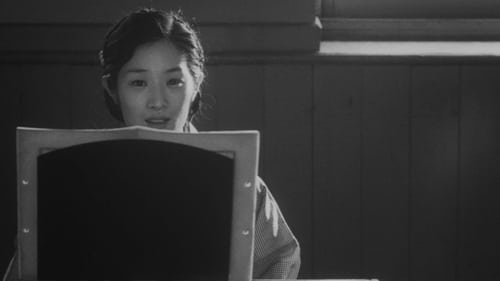
Um filme biográfico de estilo livre sobre Ikki Kita, o intelectual ultranacionalista japonês, cujas as ideias inspiraram o golpe militar fracassado em 1936. Ikki Kita foi um autor japonês, filósofo intelectual e político que atuou no início do período Shōwa no Japão. Um severo crítico do sistema do Imperador e da Constituição Meiji, ele afirmou que os japoneses não eram o povo do imperador, mas que o Imperador era o "Imperador do Povo".

A Buddhist priest rescues a homeless girl and brings her into his temple's household. Soon she becomes an essential part of the place. One night she is raped by a young man who then becomes her lover. The priest happens on them one night as they make love before the temple shrine, and he becomes erotically obsessed.
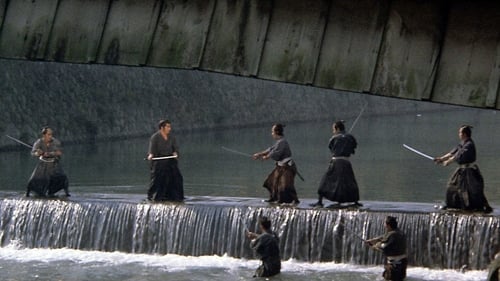
Bereaved Woman's Servant
Nesse primeiro filme da série, baseada no mangá de Kazuo Koike, nos é contada a história por trás da origem do Lobo Solitário. Ogami Itto, o executor oficial do xogunato, é vítima de uma armação, feita pelo clã Yagyu, que o fez parecer desleal ao regime a que servia. Pai e filho, então, partem em uma batalha contra o clã Yagyu.

Shocking scenes are revealed in the Nagasaki Women's prison.
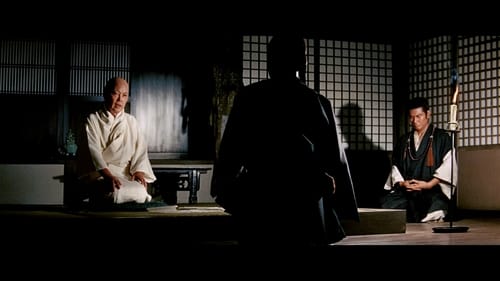
Shige
Zatoichi is a blind massage therapist and swordsman who finds out that something troubling is taking place on the outskirts of town. After discovering who the guilty parties are -- an accomplished Chinese martial artist named Wang Kang and his youthful attendant -- Zatoichi finds them and discovers that the pair's mixed up with a dangerous bunch of terrorist samurai who murdered the boy's parents. Now, Zatoichi must step in to save the day.
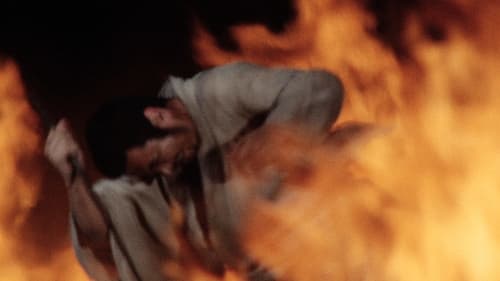
Zatoichi is mentored by the blind leader of a secret organization as he contends with both the Yakuza and a jealous husband.

Osei, the brothel madam
One murky night, Soetsu, a blind acupuncturist and money lender, calls on Shinzaemon Fukami, a Hatamoto samurai, to collect some money. But Fukami is too busy having an affair with a maid and curtly tells Soetsu to ask Sawano, his wife, for the money. As they have no money, Sawano interprets her husband's words as telling her to give herself to Soetsu in lieu of payment. However, Fukami catches them in the act and kills them both. Snatching up Soetsu's money bag with 30 ryo in it, he then asks two ruffians, to sink the bodies in a marsh. From what follows, it seems as if the spirits of Soetsu and Sawano are still hovering on earth in anguish and anger. For soon afterwards, Fukami is found dead by his own hand and Osono, Soetsu's younger daughter, suddenly disappears from home.

Getting an opportunity to meet with another half-Caucasian swordsman, Kyoshiro finds himself involved in a series of dangerous encounters.

BLOOD END is one of the great unknown films from Japan's golden era of the late 1960's. Starring NAKADAI Tatsuya in one of his best roles, this is the story of the Mito Tengu Group who attempted to overthrow the Shogunate at the beginning of the Bakumatsu Period. Their political aspirations led to countless assassinations, as well as senseless killing of innocent people who got in their way. Sentaro (NAKADAI), a farmer who's been severely beaten for his outspoken defiance of the government and the high taxes during a time of famine is befriended by one of the group's leaders, KADA Gentaro (KATO Go) and joins up. This is the masterpiece of director YAMAMOTO Satsuo (who is best known for the first film in the NINJA, BAND OF ASSASSINS series) the erstwhile 'Leftist' director, who used his films to make his political points. Stunning fight choreography, and ultra-violence make this one of the bloodiest films of that era. A powerful film Rare classic!
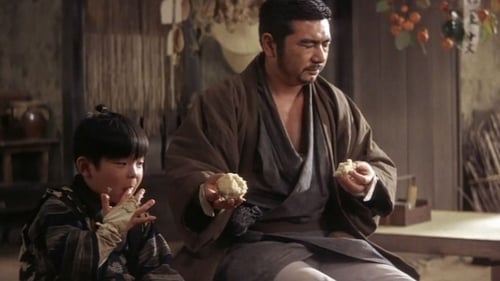
Ichi is staying at an inn when a woman dies. Her dying wish is that Ichi take her son to his father, an artist living in a nearby town. After arriving in the town, Ichi finds out that the father has been forced by a local boss to create illegal pornography to pay off his gambling debts. Ichi makes it his mission to save tha man and reunite the family, even though it brings him into conflict with a samurai he sort of befriended on his way to the town.
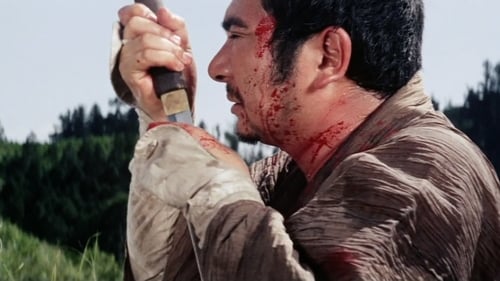
When a local gambling house kidnaps some peasants because they failed to pay their debts, a rival gambling house pays their debts and sets them free.

Third film of the yoidore hakase series
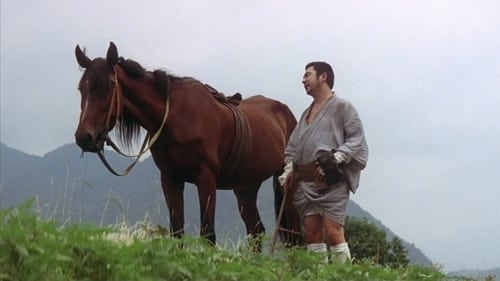
Zatoichi's trek through 88 temples to atone for his violent past is interrupted as he stumbles into a village terrorized by a violent yakuza boss.
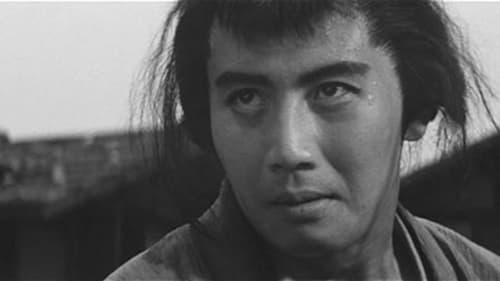
A naively honorable samurai (played by Raizo) comes to the bitter realization that his devotion to moral samurai principles makes him an oddity among his peers, and a very vulnerable oddity in consequence. He takes the blame for the misdeeds of others, with the understanding that he will be exiled for one year and restored to the clan's good graces after the political situation dies down. As betrayal begins to heap upon betrayal, he realizes he'll have to live out his life as a master-less ronin, if not hunted down and killed.

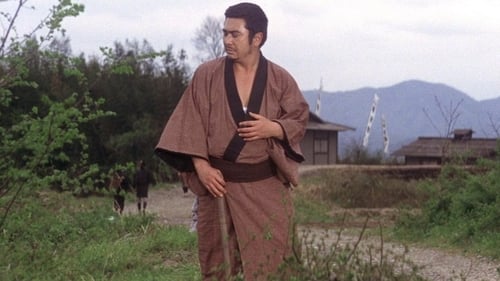
Tamekichi's mother
Zatoichi comes upon a dying man who asks him to give a bag of money to "Taichi". Zatoichi has no idea who this is but when he comes upon a small town harassed by gangsters, he finds that "Taichi" was the man's young son. Along his travels he also met a blind monk who makes Zatoichi question his murderous lifestyle. In trying to help the town, Zatoichi kills some gangsters and becomes a hero to the boy. He must make a choice of whether to use non-violence and set a good example, or violence and set the boy on the wrong path in life.

The masked daughter of the Shogun wants to kill a samurai who has seen her scarred face. She sends waves of ninja warriors to kill the samurai and plots diabolical schemes / ambushes without much success.
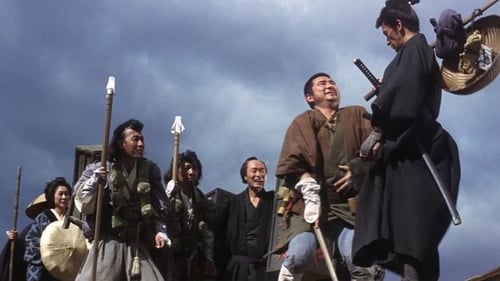
Widow Tarozaemon
Zatoichi makes friends with a dangerous chess player, while fending off angry yakuza and bloodthirsty relatives out for revenge, and trying to save a sick child. Meanwhile, his luck with dice is turning.

Sixth film in the series. A little boy who just wants to be a carpenter is at the center of a plot that might topple -- or save -- a mighty Clan, and while the swords of some angry samurai may not cause Kyoshiro much trouble, the deadly wiles of two women may be more difficult to survive!

Nezumi Kozō is the nickname of Nakamura Jirokichi, a Japanese thief and folk hero who lived in Edo during the Edo period. His exploits have been commemorated in kabuki theatre, folk songs, jidaigeki, and modern pop culture.

A wandering gambler strolls into a village searching for his father's killer, unaware that the village is run by criminals who sell the poorest peasants into slavery.
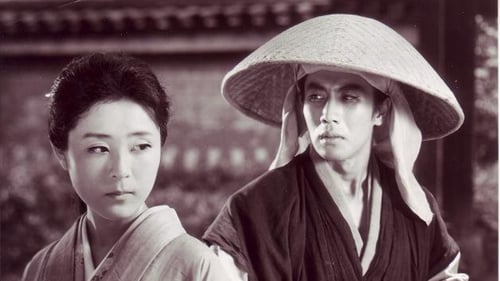
[Period covered: 1582-1594]. As the film opens, the warlod Nobunaga Oda rides to Iga Ayanokuni shrine. He is asked if he thinks he has destroyed all the ninja who opposed him and answers that he suspects that there may be more. A servant brings water and tests it first. The paige dies and we hear gunshots as two ninja flee the scene. His suspicions confirmed, Nobunaga oversees the execution of captured ninja and decides that, in the future, he needs a much crueler method of execution. The daimyo Hideyoshi comes to visit.
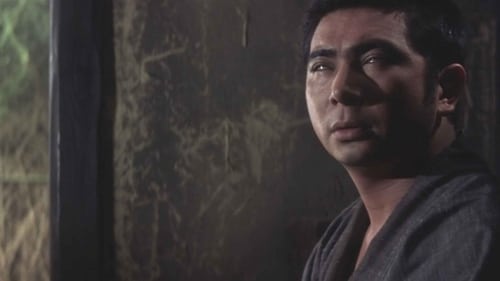
Old lady going deaf
Desejando encontrar paz, Zatoichi viaja para sua antiga vila, mas só encontra problemas quando acaba em um triângulo amoroso e descobre que antigas dividas o perseguiram até em casa. (e 12 - Estimado 12 Anos)
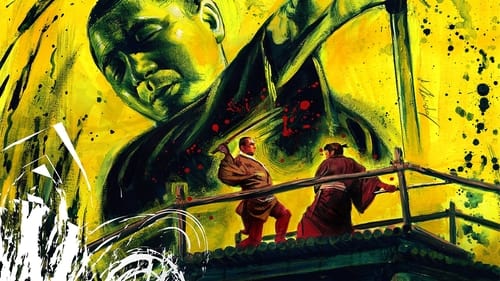
Kane the innkeeper
As aventuras de um massagista cego, que por acaso também é um mestre espadachim.
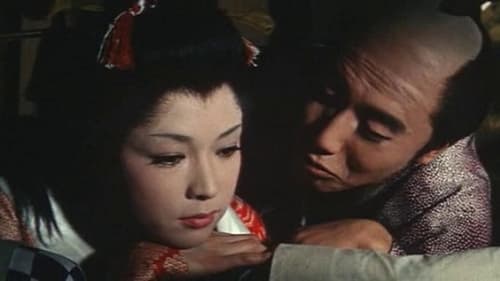
Fascinated with women from an early age, Yonosuke had his first sexual encounter at the age of seven. From that day on, he recklessly and forwardly pursues women, feeding his fascination and experience. As Yonosuke's salacious behavior brings much cause for shame to the family, his father eventually breaks relations with him. Expelled from the family, 19-year-old Yonosuke embarks on a pilgrimage of lust, traveling far and wide to acquaint himself with women of all walks.

Kikuji is the scion of an Osaka merchant family whose traditional power is matrilineal. Instructed by his overbearing mother and grandmother to give them an heiress for the family business, he stands by helplessly as his wife is thrown out of the house for producing a son. Driven to a life of dissipation - his mistresses also fail to produce daughters - in the end he is just too tired to care.

Film directed by Kenji Misumi.

The film won 1959 Blue Ribbon Awards for best actor Raizo Ichikawa and for best cinematography Kazuo Miyagawa. The film also won 1959 Kinema Junpo Award for best actor Raizo Ichikawa.

Um camponês pobre, após anos de miséria, torna-se um rico e poderoso comerciante de Osaka. Projeto final de Mizoguchi Kenji, ele morreu antes de concluí-lo e as funções de direção foram entregues a Yoshimura Kozaburo.

It is brother against brother in this tale of love and betrayal within the famed Yagyu clan. In one of their earliest films together, superstars Ichikawa Raizo and Katsu Shintaro are magnificent as the two finest young swordsmen in the clan. As they vie for the hand of a beautiful woman their loyalty comes into question during an attack on their lord. When one of them masters the secret technique taught to him by Miyamoto Musashi, it leads to bloody violence that can tear the clan apart! Filled with superb swordplay this rare classic is not to be missed!
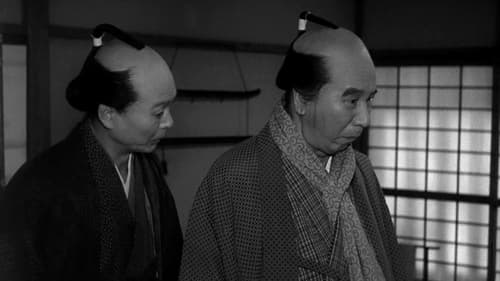
Otatsu
No século XVII, esposa de um rico avarento vive insatisfeita e frustrada, e quando precisa de dinheiro para ajudar o irmão, recorre a um dos empregados do marido. Os dois são descobertos, mas o rapaz assume a culpa para salvá-la. Sabendo das traições do marido, ela decide arriscar tudo e fugir com o empregado.
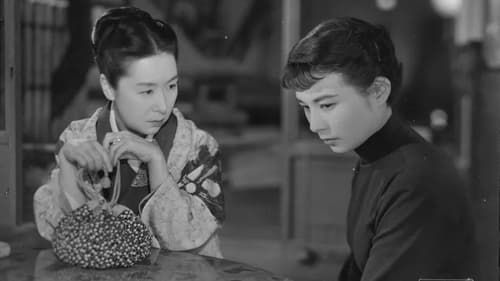
Oharu
Hatsuko Umabuchi é uma viúva proprietária de uma próspera e requintada casa de gueixas de Quioto. A filha, Yukiko, regressa de Tóquio, onde estudara música, depois de uma tentativa falhada de suicídio porque o noivo a deixou quando descobriu qual era a profissão da mãe. Hatsuko tem nesse momento uma ligação amorosa com um jovem médico, Matoba, responsável pela saúde das gueixas. O médico sente-se atraído por Yukiko, que inicialmente o rejeita por o associar ao negócio da mãe. No entanto, os seus sentimentos alteram-se gradualmente na ignorância de que ele é amante da mãe.

Okoyo, the mistress of Lord Arima, fears that she is being replaced by a younger woman named Otaki. In a fit of jealousy, she kills the younger girl. The dead woman's cat licks her blood and becomes a demon, seeking revenge on Okoyo
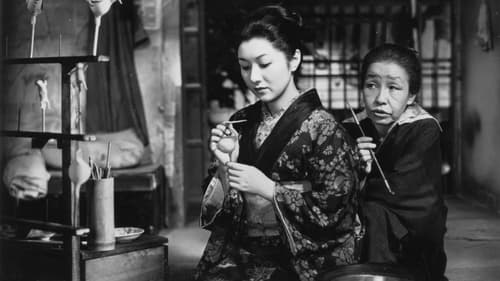
In the post-war Gion district of Kyoto, the geisha Miyoharu agrees to apprentice the 16 year-old Eiko, whose mother was a former geisha who had just died. After a year of training they have to find a large sum of money before Eiko can debut. Miyoharu borrows the money from the tea-house owner, Okimi, who in turn obtains the money from the businessman Kusuda. Kusuda fancies Eiko himself and wants to give Miyoharu to Kanzaki in order to close a large business deal. However both geishas have minds of their own and, going against tradition, want to be able to say no to clients.

Nanny
Shinnosuke is introduced to Shizu as a prospective marriage partner, but he falls in love with her widowed sister Oyu. Convention forbids Oyu to marry because she has to raise her son as the head of her husband's family. Oyu convinces Shinnosuke and Shizu to marry so that she can remain close to Shinnosuke.

A 1946 Japanese film directed by Keigo Kimura.

Matsugoro is a poor rickshaw driver whose animated spirit and optimistic demeanor make him a favorite of the town. Matsu helps an injured boy, Toshio, and is hired by the boy's parents.































